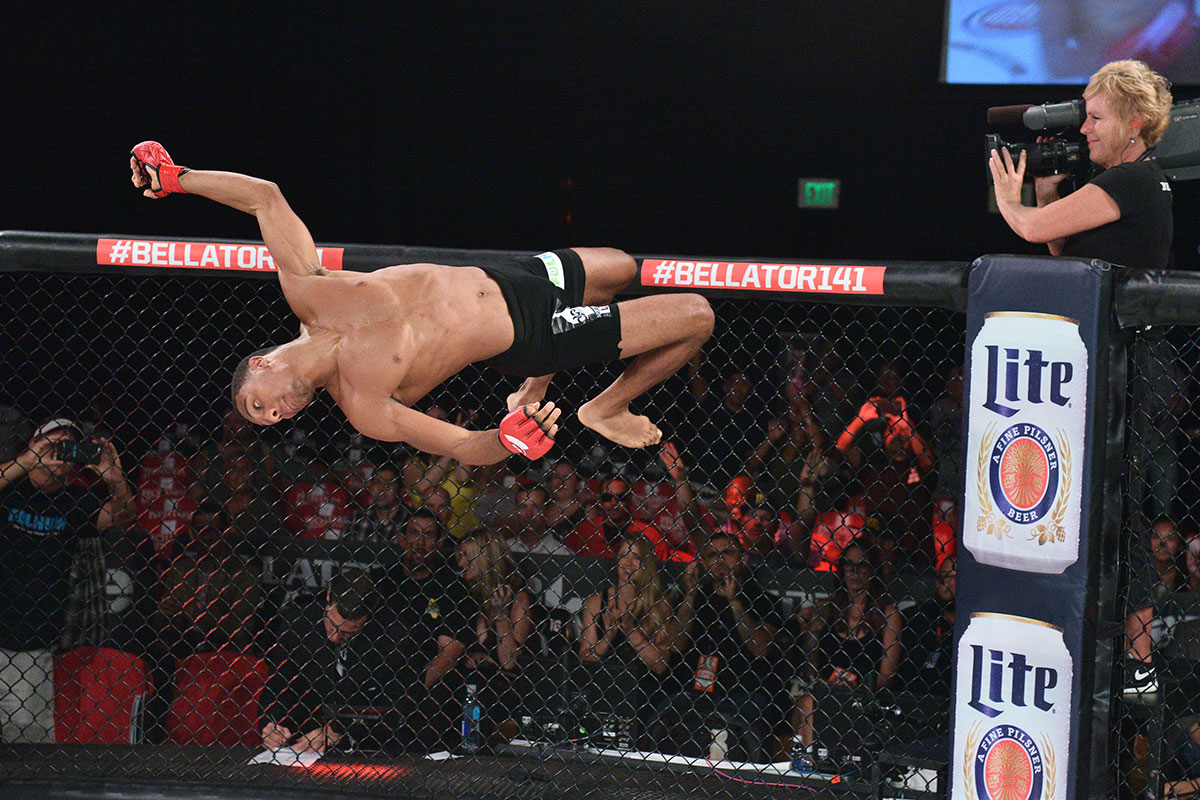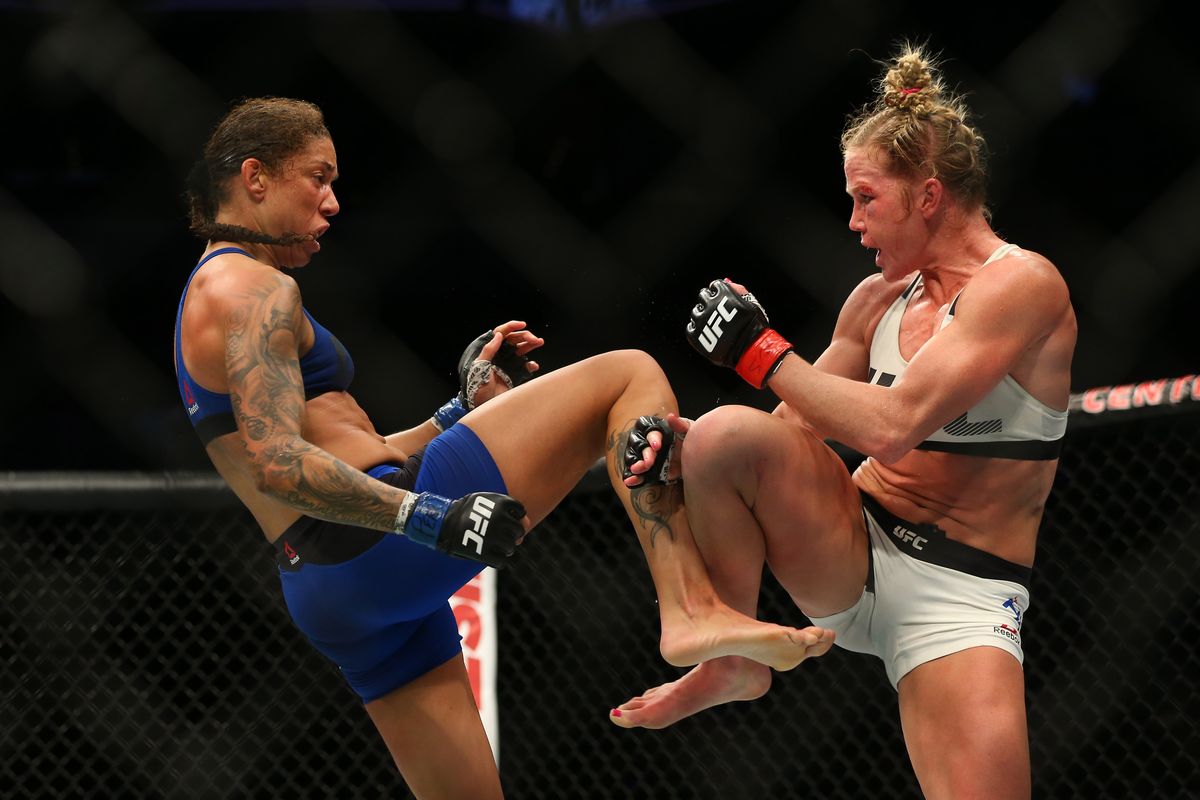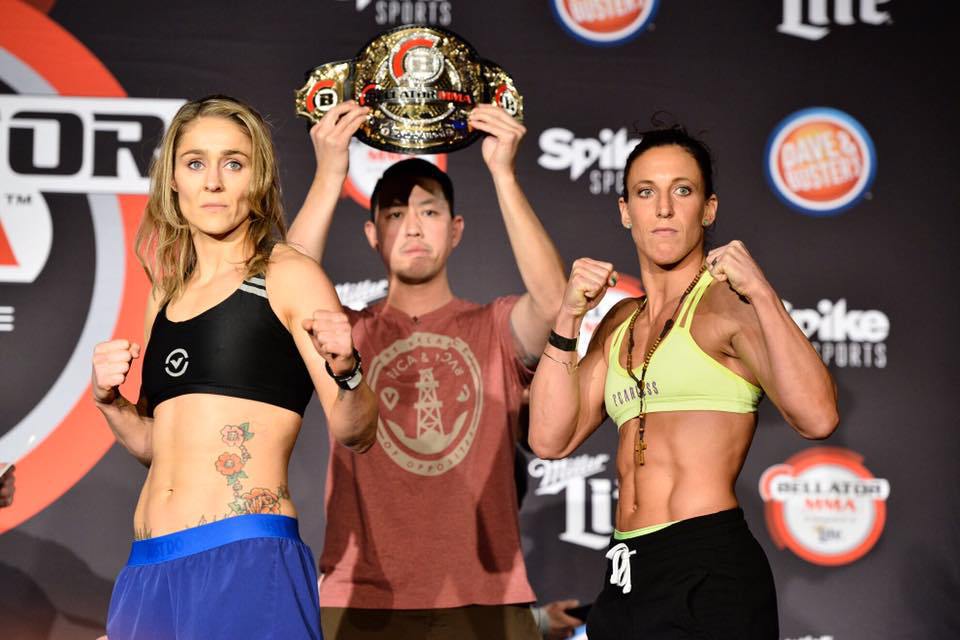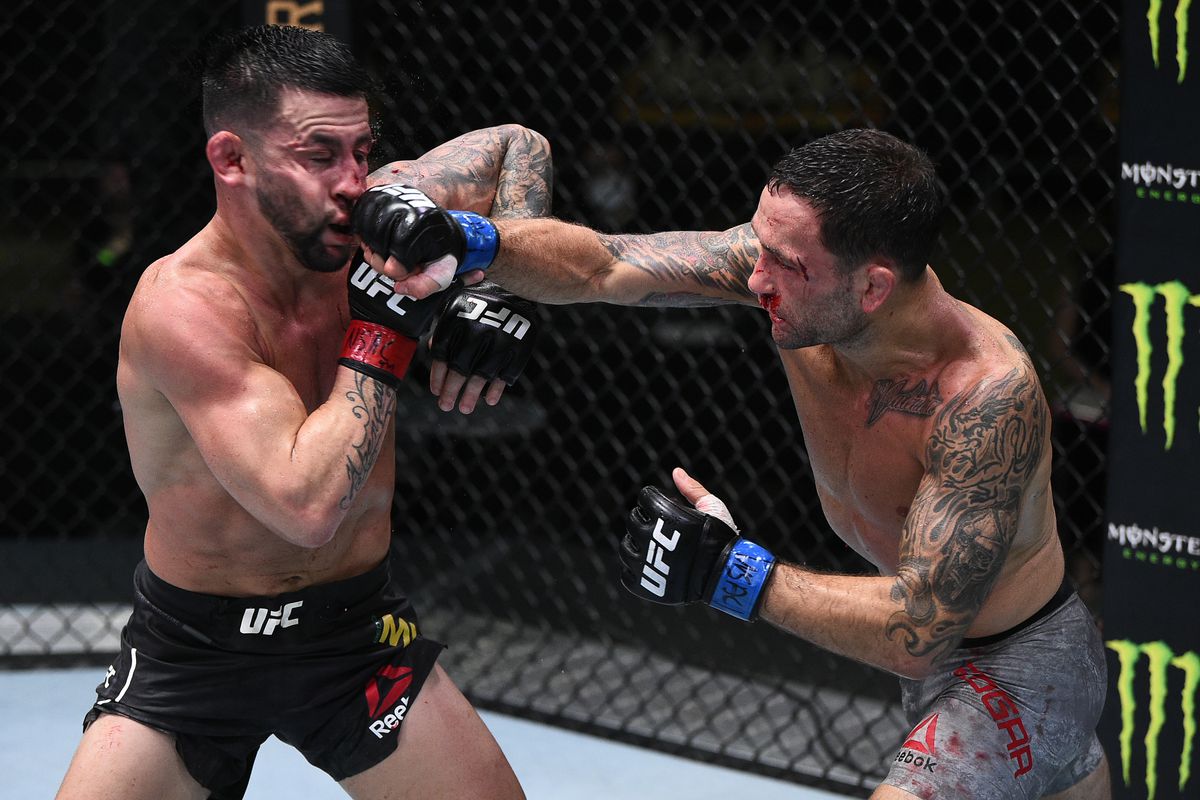Earlier this year I discussed the problem with Bellator MMA, pointing to the lack of depth they have across the organization in each and every division. My perspective has been that the organization has made a habit of going to extremes when cultivating talent. They either go the free agent route, bringing guys in with names that draw eyes, headlines, ratings, and to some degree credibility, or on the opposite end of the spectrum, they bring in numerous unknown and inexperienced prospects. These prospects are the sort of fighters who have athletic talent and worlds of potential, but not much else — not experience, not high-level skill, not a fan base or credibility.
It’s this top- and bottom-heavy approach to filling a roster that has enabled Bellator to make some headway as an alternative to the Ultimate Fighting Championship, as their big signings — Tito Ortiz, Quinton “Rampage” Jackson, Chael Sonnen, Benson Henderson, Phil Davis, and Kimbo Slice — all brought in attention, from hardcores, media, and casuals alike. Many of these guys brought a sense of stability and credibility to the organization, as most of these guys had competed in and won in the biggest organization in the world. These free agent signings changed the direction of Bellator, bringing in huge ratings, putting butts in seats, and giving the organization huge boosts in talent, experience, and championship or top contendership pedigree.

The prospects — Emmanuel Sanchez, James Gallagher, and AJ McKee — also made their marks, showing potential for world class status and showing the potential to connect with casual and hardcore fans. But for all the good things these prospects and free agents have provided Bellator, they haven’t provided the one thing Scott Coker and company needed the most: stability, consistency, and diversity. The limited amount of legitimate well-known, experienced, and skilled fighters has hindered the quality of cards, completely eliminating unique high-quality matchups. This has had a negative impact on the promotion’s ability to build prospects through well-matched fights, rehab stars that have suffered setbacks, or provide opportunities for lesser-known fighters to develop names and momentum through activity against quality opposition.
But as much as I harp on these two issues — and I do so often because they are huge issues that have affected Bellator’s fighter development, ability to maximize earnings, opportunity to be considered a legitimate competitor to the UFC, not just an alternative — it seemed that Bellator would always be a step or two behind, that it could never match up head to head. Then this happened:

At UFC 208, the Ultimate Fighting Championship did what no one expected and what no one wanted: culminated the creation of a new “division” with a championship fight between two challengers who didn’t fight in the division they were competing for championship gold in. One fighter was a winning but unspectacular bantamweight, only possessing wins over meandering opposition who had abbreviated stays in the organization, and losing to the only ranked opponent she had faced. The other fighter was a former champion who had reached the pinnacle of success before falling on hard times with two decisive and one-sided losses…IN A DIVISION LOWER THAN THE ONE SHE WAS COMPETING IN FOR CHAMPIONSHIP GOLD!
On top of having two lower weight fighters competing for the featherweight title, the matchup didn’t feature the pound-for-pound best female fighter and the gold standard for featherweight fighters in all organizations across the world. It was a sideshow of incredibly unexplainable and embarrassing circumstances for the organization; that was before a fight that was rife with controversy, but light on consistent action, filled with below-average wrestling, and devoid of grappling. A champion was crowned, but none that could be considered dominant or popular.

What made this worse was that the fighters and the fans had asked for the creation of a new division, a flyweight division. Fighters complained strawweight was too tough a cut, fans complained on behalf of the fighters that records, rankings, and performances were being ruined by the weight class and the cut some had to make to compete in it. Not to mention the numerous high-level women who fight in this weight class, unlike the featherweight division that has and continues to be painfully thin and underdeveloped. These two gaffes by the UFC is where the door cracked open, and for once in its existence, Bellator MMA not only had an advantage, but was able to make the most of said advantage.
Last year, Bellator introduced two weight divisions for its women to compete in: featherweight and flyweight. The promotion slowly and carefully filled the divisions, making key signings of young and established talent. Some fighters had the raw talent but were young in the game, and other fighters were signed who may be a little older, but had established themselves as legitimate combat sports participants. No flashy signings, just good ones; Bellator sought to fill out the divisions, not just make them top and/or bottom heavy. Slowly these fighters were introduced to the casual mixed martial arts fanbase.

In the case of the featherweight division, the champion was crowned at Bellator 174 in a matchup between two seasoned and legitimate featherweight fighters, fighters who had faced the best opposition in two divisions. More importantly, you had two fighters who had developed the full array of skills in MMA…much more so than the two blown-up bantamweights who took part in the “championship” title tilt that took place in the UFC. The fight didn’t have the platform or the media presence of the UFC, but in every sort of measurable, the title fight between Marloes Coenen and Julia Budd overshadowed the fight between Holly Holm and Germaine de Randamie. In one fell swoop, Bellator had the better and more decisive fight ending, the more skilled fighters, the more experienced fighters, and the more established fighters in regards to the division they competed in. In fact, one of the combatants had faced the baddest woman in mixed martial arts twice; the other had a decisive win over the current UFC featherweight titleist.
Over the next year, Bellator will expand and solidify its flyweight division with a champion as well, once again overshadowing the UFC, who doesn’t have that division, shows no inclination to develop the division, and is missing out on a number of world class talents who compete in said division. The UFC has lost one fighter, and I honestly believe they will lose more moving forward, as fighters too big for strawweight and too small for bantamweight seek a North American organization to join and a division they can compete in comfortably. Bellator has now provided that, beating the UFC to the punch and answering the requests– or better yet the demands — of the fans of both organizations.

One huge mistake by the UFC has given Bellator the opportunity it needed to re-establish some legitimacy as a competitor to the UFC. Not across the board, not in every division, but in two divisions, and no one would have said that a year ago. Now they HAVE TO; it’s only right that it’s the women’s divisions that are bringing legitimacy to the organization, as Coker was the guy who provided the biggest and best opportunities for female fighters to develop fan bases, perform on big platforms, and develop the experience and skill that comes with facing top-level opposition. It’s only right that the man who REALLY developed the big organizational presence of female fighters has been legitimized and been put in pole position by their reintroduction into the organization he has taken over and rebuilt in his image.
Bellator isn’t neck-and-neck with the Ultimate Fighting Championship — not in number of fighters, quality of fighters, or name value of its fighters — but in these two divisions Bellator has outclassed and outworked the UFC. For the first time in a long time, another North American organization can say it has a leg up on the Ultimate Fighting Championship. If it plays its cards right, Bellator Fighting Championship may for all intents and purposes become a legitimate competitor to the UFC, instead of merely a alternative option.




